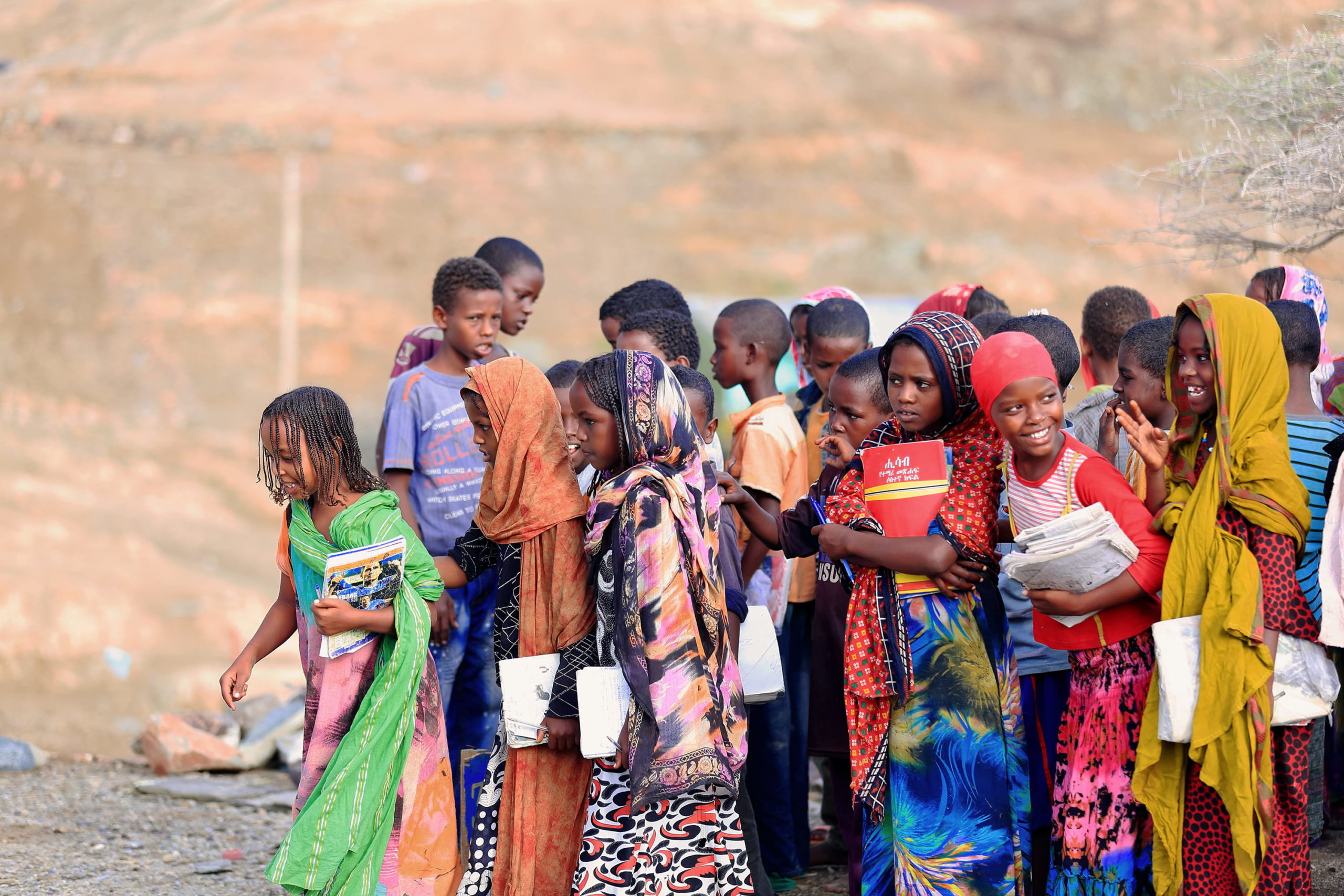The project, to be conducted jointly by the Centre for Global Development (CGD) and Policy Studies Institute (PSI), aims to answer the following questions by evaluating a randomized trial of community-based childcare and early learning facilities as part of Ethiopia’s flagship Productive Safety Net Programme (PSNP):
- What is the impact of providing affordable childcare to women in poor and vulnerable households on their economic and social outcomes?
- What is the impact of gender-transformative approaches in early learning and play on the perception of gender roles among young children enrolled in community-based childcare facilities?
- What is the impact of external childcare on the educational outcomes of older, school-age siblings residing in the same household?
Despite growing efforts to improve the economic and social conditions of women in developing countries, the burden of childcare responsibilities remains an underappreciated constraint on poor and vulnerable women. In the absence of proactive policy solutions, the childcare burden could undermine the impact of other social protection and labour market interventions, such as public works intended to empower women economically.
There is an emerging body of evidence that community-based childcare facilities could offer a cost-effective alternative to home-based childcare in low-income countries. Community-based childcare centres not only allow mothers to participate in productive employment outside the home but also create an opportunity for young children to spend time in a safe and stimulating environment that could help improve their early learning outcomes. There is also a more subtle but potentially powerful channel through which community-based childcare facilities could be leveraged to reshape regressive gender norms in the long run. By exposing young children who would otherwise spend much of their formative time within the confines of their homes to a carefully calibrated gender-responsive play and learning environment, community-based childcare facilities could be used as a platform to change gender norms from early childhood. In addition to the direct impact of community-based childcare on women and young children, the proposed study also aims to examine the externality with respect to the education of older siblings.
The study will be grounded in an existing policy initiative to expand early childhood development services among low-income communities in Ethiopia and use the PSNP as a platform to exploit the synergy between freeing up mothers’ time for productive employment and exposing their children to a more stimulating environment through community-based childcare.
The study builds on a nascent body of literature documenting the impacts of childcare services on women’s economic empowerment and children’s development outcomes in low and middle-income countries. Although there is growing evidence of the positive impact of affordable childcare on mothers’ labour force participation, there is limited research on the effect of embedding such an intervention in a larger scheme of social protection, such as a public works program, in a manner that can maximize the potential synergy. By combining a productive safety net with affordable childcare, the current study simulates the kind of “big push” that might be necessary to help women in poor and traditional communities break out of interlocking constraints that keep them out of productive employment. The study also sheds light on the synergetic impact of mothers’ economic empowerment and early childhood development services on children’s outcomes.
The novelty of the study lies in its attempt to examine the impacts of an intervention that employs a cross-generational gender transformative approach built around a standard public works social safety net program. There is recent evaluation evidence on the impact of interventions to transform gender attitudes and norms among adolescents in a school environment (for example, Dhar et al., 2021 and Vyas et al., 2019, both from India). But it is quite possible that earlier interventions could have an even larger and more persistent effect. However, there is little to no evidence on the impact of gender-responsive play and pedagogic approaches on shaping the conception of gender roles among young children in low-income contexts. This study will help generate fresh insights on how investments to provide affordable childcare to poor households could be leveraged to also expose the children to an environment that instills progressive gender norms early on.
The study will employ a cluster-randomized trial to evaluate the efficacy and efficiency of community-based childcare to improve women’s labour force participation and children’s outcomes. The trial will have two treatment arms and a control group. The population of interest is women with young children who are eligible for the public works streams of the urban and rural productive safety net programs in Ethiopia. As an initial step, we will draw a list of urban and rural public works sites deemed suitable for hosting a childcare facility. The project sites will be stratified by geographic area, i.e., urban and rural sites, to account for the potentially distinct dynamics between childcare needs, female labour force participation, and children’s outcomes in those two contexts. The study will select 60 study sites from rural districts and 30 sites from urban centres. In each stratum, a third of the sample sites will be randomly assigned to the first arm of treatment with the implementation of community-based childcare centres, whereas a third will be assigned to the second arm of treatment with gender-responsive play and teaching added on top of the basic childcare service. The other third of the sites are assigned to a control group with no childcare provision. The sampling of individual participants in the study begins with a screening survey administered to women on the registers of selected public works sites to draw a list of eligible women. Women with children between 2 and 6 years old are eligible for the service. A random sample of 20 eligible women will be selected from each site, giving us a total of 1800 individuals in the overall study sample.
